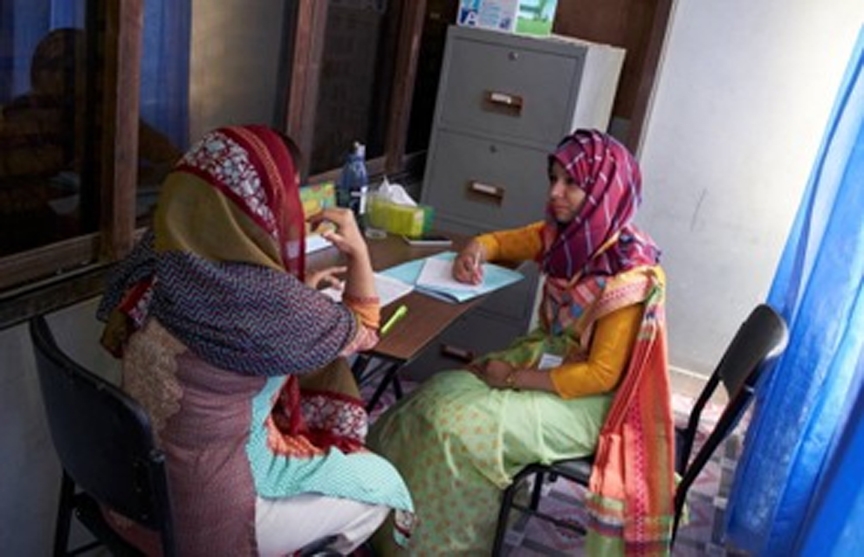
UNB, Dhaka :
A feasibility study of a low-cost school-based mental health intervention in Bangladesh found promising outcomes in improving depression status and quality of life of mothers of children with autism. The findings of the study are published in the Global Mental Health Journal.
Mental health is highly stigmatised in South Asian countries and there is inequity in mental health services. In Bangladesh, one out of every two mothers of children with Autism Spectrum Disorder (ASD) suffers from depression. Considering the stigma towards mental health and autism in our societies, an innovative mental health care intervention called psychological counselling service was introduced in two schools in Dhaka city – the Autism Welfare Foundation (AWF) and the Society for the Welfare of Autistic Children (SWAC) as a part of a research in 2017.
In the study titled “Feasibility of Implementing a Mental Health Care Program and Home-Based Training for Mothers of Children with Autism Spectrum Disorders in an Urban Population in Bangladesh (MENTHOL)” an intervention of mental health care was pilot tested between January 2017 and December 2018, which was developed by an Expert Working Group (EWG), comprised of eminent psychologists, psychiatrists, neurodevelopmental specialists, and national and international scientists.
A specially designed Psychological Counseling Service (PCS) was offered in two study schools for six months as a part of the routine services, and was freely offered to all mothers who had a child enrolled in the schools during the study period. Following the intervention, mental health state improved in most of the mothers, including significant improvement among 40% mothers who had depression and among 23% mothers who did not have depression.

The overall out-of-pocket cost of availing of PCS was about 1 US dollar (80 taka) per session for a mother. Half of the mothers acquired a normal mental health state after four sessions, and the overall quality of life improved among the mothers irrespective of having depression.
Saima Wazed, Chairperson of the Shuchona Foundation, Member of the World Health Organization’s Expert Advisory Panel on Mental Health, Faculty member at the Barry University, USA, and co-author of the MENTHOL paper, said, “Finding a workable solution for the mental wellbeing of parents who have to not only deal with the complex challenge of raising a child on the autism spectrum but also constantly face discrimination, social isolation, and other injustices, often alone has been a much-neglected area of work within the field of mental health. The MENTHOL project provides us with the much-needed evidence that not only tells us how mental health programs can be provided to those who urgently need it, but also that such specialised care can be effectively provided in a manner that makes participation easy and effective.”
Professor Kerim M Munir from Boston Children’s Hospital, Harvard Medical School, and the Senior Investigator of the MENTHOL study, said, “Globally, the burden of depression among mothers of children with autism is high, and depression negatively impacts mothers’ quality of life which eventually affect the care of their child. The intriguing component of the MENTHOL service model is that it can address two highly sensitive issues, such as autism and maternal mental health, at the same time, and we could observe impressive results following a short-term service at a very low cost, which is unique.”
Professor Salmaan A Keshavjee, Director, Harvard Medical School’s Center for Global Health Delivery, said, “Mitigating the burden of depression for mothers of children diagnosed with ASD is a critical need worldwide. This study demonstrates that it is possible to deliver a high standard of care to people living in economically and socially vulnerable situations who desperately need it in LMIC settings. This successful intervention is a roadmap for how community-based care can be provided for the spectrum of mental health challenges faced in LMICs.”
Commenting on the outcome of the study, Dr Aliya Naheed said, “I am delighted that we have found an affordable mental health service model that has enormous potential to be scaled up in Bangladesh and other low- and middle-income countries. I would like to recommend that the MENTHOL service model is integrated into any setting that offers autism care in Bangladesh at the earliest and we should also start helping other LMICs for adapting the MENTHOL service model in their existing autism care systems. I would earnestly request the government and the development partners for investing more in health research for supporting us integrating the MENTHOL service model in routine health care for accelerating access to mental health care for all people in Bangladesh.”
The study was led by Dr Aliya Naheed, Scientist and Head of Initiative for Noncommunicable Diseases at icddr,b in collaboration Boston Children’s Hospital and Harvard Medical School (HMS), USA, Shuchona Foundation, Institute of Paediatric Neurodisorder and Autism, Bangabandhu Sheikh Mujib Medical University, National Institute of Mental Health & Hospital, and the National Institute of Neurosciences & Hospital.

